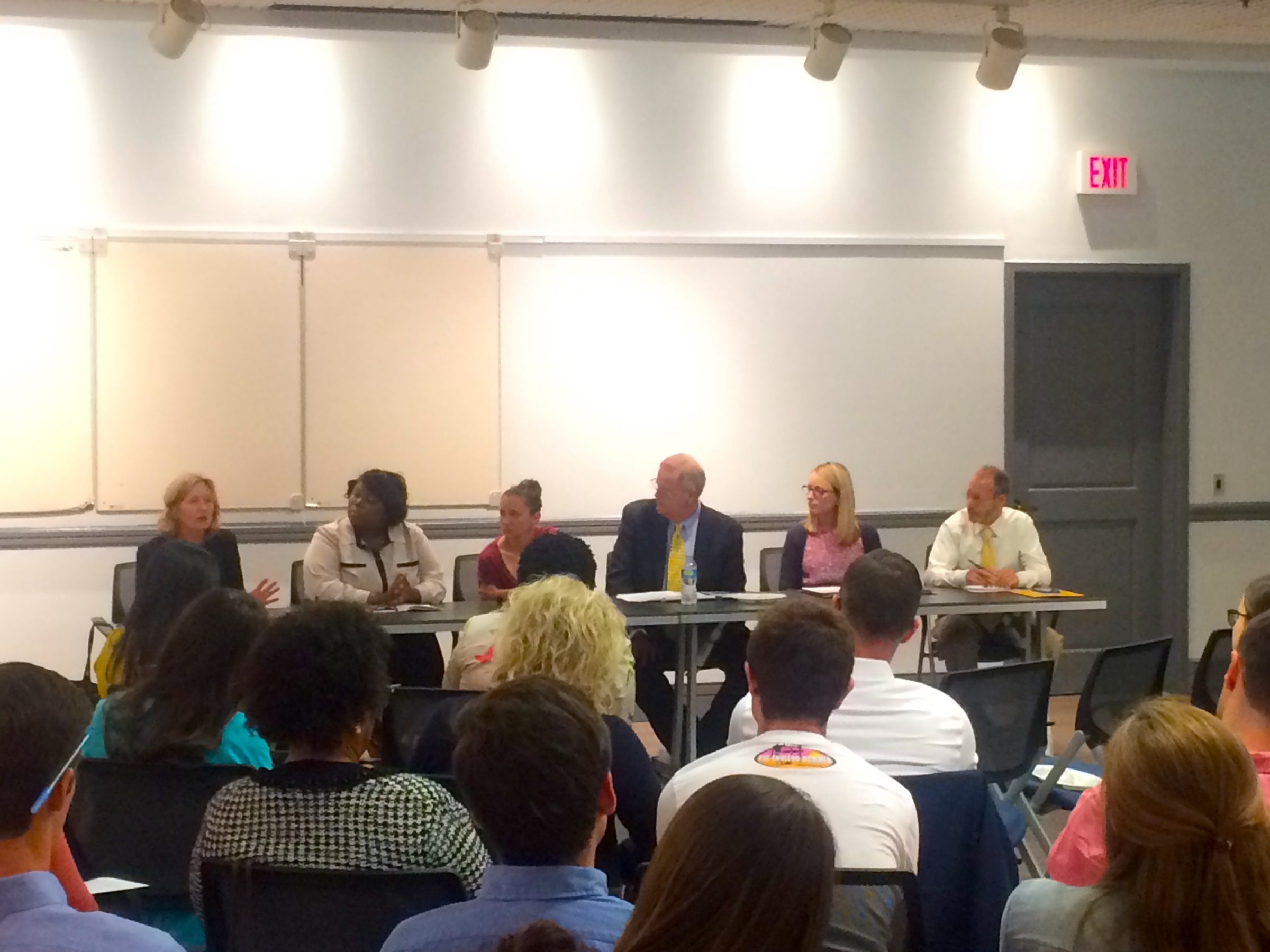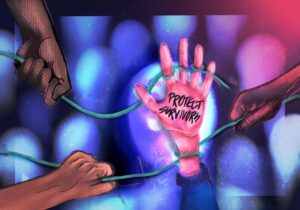On April 20, six administrators gathered with students to discuss new programs and answer questions pertaining to sexual assault on campus in the third annual Sexual Assault Open Forum.
Sponsored by GUSA, Sexual Assault Peer Educators (SAPE), and Take Back the Night, the forum allowed students to ask questions directly to a six-member panel which included Todd Olson, Vice President of Student Affairs, Laura Cutway, Georgetown’s new Title IX coordinator, Jennifer Wiggins, staff clinician and sexual assault specialist, Carol Day, Director of Health Education Services, Phil Meilman, Director of Counseling and Psychiatric Services (CAPS), and Sarah Halpren-Ruder, Sergeant at GUPD and part of the Sexual Assault Response Team (SART).
The panelists agreed that expansion of programs relating to both prevention and response to sexual assault over the past year has been a point of pride and a process that included student input. These expansions include hiring a full-time Title IX coordinator and investigator, new hires in the SART and CAPS teams, bystander intervention education for students, and the provision of a semester’s worth of free CAPS appointments for both sexual assault complainants and the accused. The expansions were in part a result of GUSA and administrators signing of a sexual assault Memorandum of Understanding in September.
“The nature of the partnership between administrators and students this year had lead to meaningful dialogue and discussion,” said Olson.
Furthermore, Wiggins described new outreach programs aimed at integrating sexual assault education into more aspects of student life. According to her, 700 students have been reached by the SAPE team this year, outside of the mandatory sessions new students take during New Student Orientation. Partnerships with athletics and a new pilot program with the Corp have all been a part of this outreach over the past year.
Despite the recent improvements, panelists readily admitted that there was a lot of work to do in terms of providing comprehensive sexual assault prevention and care. Meilman commented that growing the CAPS staff would have a beneficial impact on wait times and higher quality service to students seeking help, while Wiggins observed that bringing in more students and faculty of color as well as more men to the table would improve the conversation overall. Lack of diversity in student groups and personnel were pointed out by the panelists.
“Just looking around this room, it doesn’t look like there are many students of color being engaged in this conversation,” said Wiggins. “[And right now] we have a gendered issue, but our goal is to make it a people’s issue.”
Many student questions revolved around the need for more transparency in the reporting and investigative processes. Questioners cited the lack of statistics about how often those accused of sexual assault receive punishment, the length of investigations, as well as the support for survivors in academic and housing areas, even if a case is not opened. Others referenced anecdotes of 300 day wait times before an investigation was opened, or unclear systems for reporting assault or perceived barriers to filing a complaint with the University.
In response, panelists discussed the sensitive nature of investigations and the importance of keeping all identities of those involved anonymous. “While we can’t publicly disclose the outcomes of student conduct cases, we do disclose to the survivor who brings the complaint, and we do take it seriously and there are very serious consequences when someone is found responsible,” said Olson. “Is it a perfect system? No. Is it a system where people are held accountable in serious ways? Yes.”
Cutway also mentioned that the results of the Sexual Assault survey, which had a response rate of 51 percent of students in the beginning of the semester, were on track to be released in May, hopefully shedding light on areas and ways that the University could further improve response to sexual assault. She also hopes to increase reporting by educating students on the process through flowcharts, a mobile friendly website, and bolstered bystander intervention education.
The panelists emphasized the importance of individual conversations with staff and administrators in order to continue to improve the system in the future.
“I’d like to see Georgetown as a university where sexual assault ends,” said Meilman. “We have work to do.”





